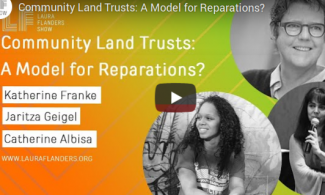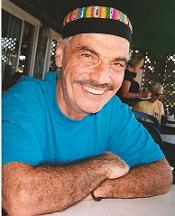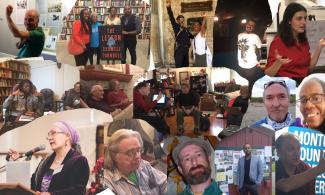For over 40 years my main occupation has been managing a community through a collective face-to-face process. This has involved ongoing experiential learning about personal development and culture building.
My secondary occupation for the past 20 years has been reflecting on how to apply that rich learning to developing democracy on larger scales. The Growing Democracy Project is the outcome. It is not an answer. Rather, it is a solid starting point.
This work began in 1980 with co-founding a small experiential research project on the North shore of Staten Island New York. Our purpose was to learn how people can make creative use of face-to-face conflict in the process of managing joint projects. We worked on this intensely 24/7 for 20 years.
In the process we built an intentional community—Ganas—of more than 80 people, 8 houses, five commercial properties, and three retail stores.
We shifted gears into a less intense life around 2000, and became somewhat smaller in the process. Throughout these four decades we have been practicing face-to-face communication and collective management of the community.
Around 2008 I began exploring how what we had learned could be applied to everyday democracy. This led to 4 years of field research in the cooperative/solidarity economic movement. In turn, this led to 10 years of active involvement in the movement as an active member of the Grassroots Economic Organizing Collective (GEO).
At GEO I was a blogger, writer, reviewer, interviewer, and editor. I am also a co-author of Building Co-Operative Power! Stories and Strategies from Worker Co-Operatives in the Connecticut River Valley (2014).
All the while I was doing extensive study in many fields of social science, adult transformative learning, evolutionary thinking, history, and political theory. In 2017 I began to pull all of my experience and study together into what became the 140,000 word Growing Democracy Workbook as well as the Growing Democracy Project vision. Now, at the end of summer 2023, we are bringing this to the world.


 Len Krimerman lives, works, dances, and dreams in rural eastern Connecticut, and has helped build bridges between the many varieties of grassroots democracy over the past five decades. In this, he has invariably been mentored by his amazing GEO colleagues, by the imagination and support of his lifelong partner, Marian Vitali, and by the courageous activism of so many of his students and community partners. Marian and Len are now engaged in helping develop the Windham Hour Exchange, a community barter initiative in and around Willimantic, CT.
Len Krimerman lives, works, dances, and dreams in rural eastern Connecticut, and has helped build bridges between the many varieties of grassroots democracy over the past five decades. In this, he has invariably been mentored by his amazing GEO colleagues, by the imagination and support of his lifelong partner, Marian Vitali, and by the courageous activism of so many of his students and community partners. Marian and Len are now engaged in helping develop the Windham Hour Exchange, a community barter initiative in and around Willimantic, CT.